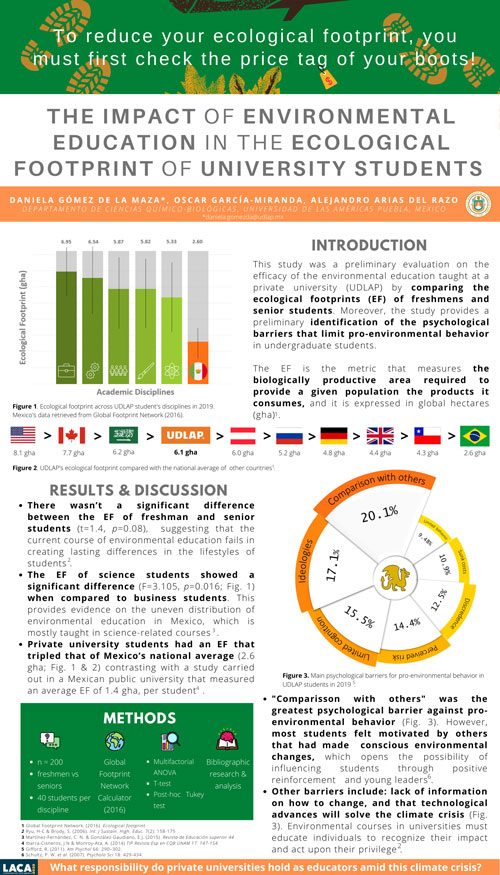
This study researched and measured the perception, impact and limitations of freshmen and senior undergraduate students, from a private university in Mexico, in order to evaluate the effectiveness of environmental education courses currently being offered at the university. The research emphasizes two main outtakes; for one, there are no significant differences between the ecological footprints of senior and freshmen students, suggesting that the current course of environmental education fails in creating lasting differences in the lifestyles of students. Furthermore, the average ecological footprint of private university students was 6.1 gha (global hectares), tripling that of Mexico’s national average. Regarding what limits the students to change their behavior, it found that a “lack of information on how to change”, their “ideologies”, and a universal sense of “distrust” were amongst the most common. However, the greatest barrier was “comparison with others”. This study opens an opportunity to improve the academic syllabus and to influence students with positive reinforcement when showing pro-environmental behavior, as well as with young environmental leaders.





